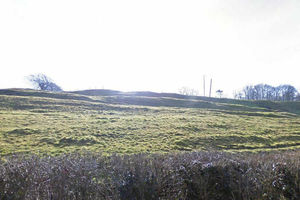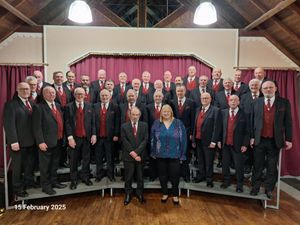Shropshire castle to undergo first archaeological survey
A castle that sits on one of the most important medieval sites on the Anglo/Welsh border will undergo its first ever archaeological survey.

Caus Castle, near Westbury, is situated up on the eastern foothills of the Long Mountain guarding the route from Shrewsbury to Montgomery, and was once at the heart of an important medieval market town.
Now, thanks to a grant from the Castle Studies Trust, a new project will help understand medieval life in the area.
While occupying a key strategic site on a pre-historic hill fort, the importance of the castle lies in its role as a major economic and administrative centre as the town was built within the castle's outer enclosure.
It is frequently referenced in medieval research as an example of a Marcher castle. But up until now, nobody has done any proper analysis of this site.
This is the first time archaeologists will undertake detailed research at Caus. Using a mixture of survey techniques including a UAV (unmanned aerial vehicle), the work funded by the trust aims to shine some light on this little understood site.
Michael Fradley, Caus Project Leader, said: "The generous grant from the Castle Studies Trust will allow the first complete analysis of Caus Castle. Frequently referenced in medieval research, the site has never been subject to any meaningful analysis.
"As a result we know virtually nothing about its form, development and chronology. This grant could finally establish a benchmark in our understanding of the dramatic and well-preserved site."
John Goodall, Castle Studies Trust patron, added: "Caus is not a building that is very well known but it is very important for our understanding of life on the Anglo/Welsh border during the Middle Ages by revealing the relationship between the castle and what at one time was a major settlement."
Caus Castle may have been built by Roger Fitz Corbert in the late 11th or early 12th century and the first documentary reference to the castle is in 1140.
In 1200 the neighbouring town was granted a charter for a weekly market and in 1248 permission was granted for a fair. The town, which was established primarily to serve the castle, appears to have prospered in the 13th century and in the first half of the 14th century.
In the latter half of 14th century the town went into decline although the castle was garrisoned during the revolt of Owen Glendower. Caus Castle remained in use until the Civil War when it was briefly besieged.





